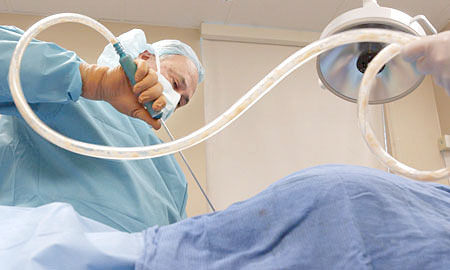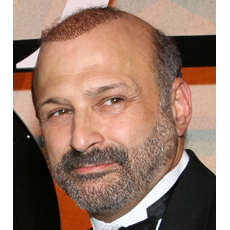
October 23, 2012
Raskin Treats Addiction Medically
Many residents like to think of Pacific Palisades as a tiny corner of paradise un’affected by drug and alcohol issues. Dr. Damon Raskin, an internist who has about 1,000 patients in his Palisades practice, discounts that notion.
‘Addiction affects all ages and all socioeconomic classes,’ said Raskin, who has been helping patients with addictions for the past 10 years, including six at Cliffside Malibu, a drug and alcohol rehabil’itation center north of Zuma Beach.
‘We’re seeing a lot of opiates, especially drugs like Oxycontin, Vicodin and Percocet,’ Raskin said. ‘People are getting it off the street and from their friends’ medicine cabinets. They ‘doctor shop’ and also go to emergency rooms asking for pain medicine.’
Once a patient admits he (or she) has a problem, some try to stop ‘cold turkey.’ The alternative is a ‘medically supervised’ detox program, which Raskin considers pref’erable, because when people who are drinking a fifth of vodka or two bottles of wine daily suddenly stop, their bodies can go into seizures.
Raskin also noted that people who are taking 20 to 30 Vicodin a day have developed a tolerance, and for them to stop suddenly can be life-threatening. Even those going through detox ‘can have insomnia, vomiting and severe muscle aches and it becomes so uncomfortable they go back to the substance to stop the pain,’ Raskin said. ‘Their attitude is ‘Screw this, I’m out of here.”

The doctor’s goal is to make the patient comfortable with non-addictive drugs during detox, which can take 10 to 15 days depending on the substance.
He was asked about those who recommend no medical intervention during detox. ‘It is unsafe and bad judgment and tortures the patient,’ Raskin said. ‘We want to help people get in the ‘right way’ to help their sobriety. We help them detox in the safest way.’
He continued, ‘Some who are ad’dicted often start on substances as a form of self-medication for depres’sion, anxiety, bipolar or psychological issues. Others get hooked because they start a drug for a real reason, a real pain, but then they realize they love the high. The drug bonds to an opiate receptor in the brain that then releases dopamine, which makes a person feel good, like a runner’s high.
‘Over time they need more and more of the substance,’ Raskin said. ‘Yet others have a genetic component that is part of their brain that won’t let them stop.’
According to Raskin, many people try to quit on their own, but it’s difficult. ‘They will say, ‘What’s a glass of wine?” and eventually find themselves back to several bottles a day.
Raskin recommends a rehabilitation center because patients are given other therapies aimed at preventing a relapse. ‘Patients struggle every day [after rehab],’ he said. ‘Even though they are clean, they attend AA and NA, but recovery goes on indefinitely.’
After detox, Raskin can also give a monthly injection (Vivitrol or the generic Naltrexone) that prevents craving. Even if a patient tries the substance that he or she was addicted to, it no longer gives a high. ‘I give the injection once a month for 12 months. It gives a patient time to break a habit.’
What are the prevalent drugs in the Palisades? ‘You name it,’ said Raskin, who has also seen heroin addiction, mostly in people in their 20s.
How can parents tell if their children are on a substance? ‘It is sometimes hard to tell the difference between typical adolescence behavior and drug abuse,’ Raskin said, but changes in grades, attitude and different friends could be indicators. Other warning signs are drug paraphernalia, empty plastic bags and a child’s losing weight.
Raskin also alerts parents to a new over-the-counter product that will result in a clean urine test regardless of what the child may be abusing’although it may not be foolproof. He recommends a saliva, hair or blood test if a parent is worried that a child is using drugs.
Original Article
Cliffside Malibu
Dr. Damon Raskin










